About ninety per cent of amateur dramatic companies closed down at the outbreak of the Second World War.
In response, in early 1940, the Government launched a campaign to encourage them to reopen. Measures were put in place to support and promote amateur theatre, recognising the importance of theatre to the nation’s morale, and the extensive reach of the amateur sector.
Because in times like these we need the art of the stage – we need the emotional release of great plays or the lighter but equally emotional relief of good comedy. Nothing is worse than to sit at home and brood about bombs; nothing is better than to be lifted out of your own environment, your own troubles, your own war, and transported into a different world with a new and interesting set of people, to share their troubles or their happiness. That is what, for a few short hours, a play does for you.
The Little Theatre bucked the trend and remained open. The following, from the Secretary’s Report, 1940-41, gives some idea of the adversity they faced, whilst putting on A Man’s House, a play with a large male cast:
The Cast was chosen and with Mr F.T.Pickles as producer the first rehearsal was called for a Monday evening in June.
‘This date turned out to be the fateful day when France capitulated and the bottom seemed to have fallen right out of everything. No one knew what the next day or even hours for that matter might bring forth, and we were certainly living through a period of grave anxiety. About half the cast turned up for the rehearsal but a reading was got through somehow.
No rehearsal in the history of the Society had ever been called under such trying circumstances. Quite a number of the cast resigned for various reasons and it looked as if the production would have to be cancelled, but owing to the untiring energy and enthusiasm of the producer, a full team was eventually got together, and in spite of rehearsals being constantly interrupted and sometimes cut short by air raid alarms … a very successful result was obtained, both artistically and financially, and the Society can feel proud at having put on a production of this calibre under such abnormal conditions and at a time when most other societies had suspended activities altogether.
The Little Theatre carried on producing its regular season of plays, and the audiences came in their droves, despite fears of air raids and gas attack. At the time, programmes bore the cautionary message:
During the period of the War patrons are expected to bring their Gas Masks to the performance and the Society can accept no responsibility for injury resulting from the poorly lighted exits or enemy action.
In the ‘Keep Calm and Carry On’ spirit, patrons were also advised:
In the event of an ‘Alert’ warning being received the curtain will be lowered for five minutes to allow patrons who have to report for duty and such others as wish to leave. After that time the play will proceed.
By the end of the war, the theatre could report:
The year under review has seen the termination of hostilities in the greatest war of all time … but in spite of all these difficulties the period has been one of outstanding success for the Society.
The Dramatic Section has again had a very successful year, presenting four plays to audiences totalling more than 9,000 for the year. The application for seats has successively increased in number until nearly 1000 more applications were received for each performance than available seats.

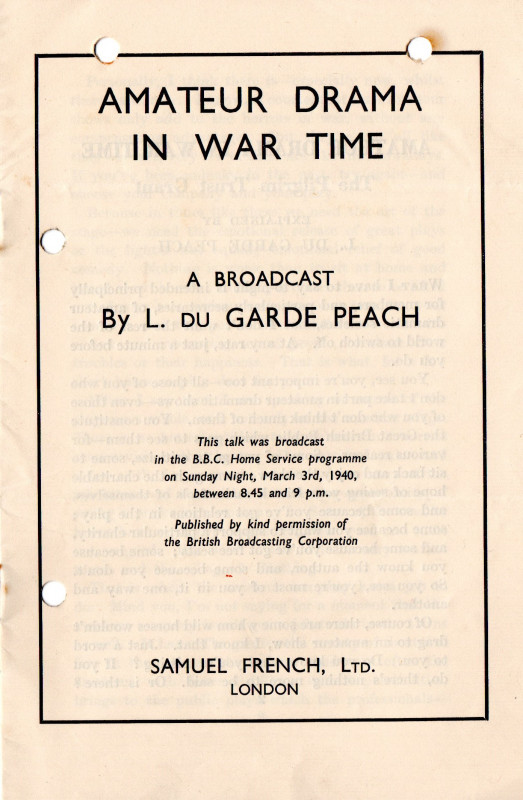
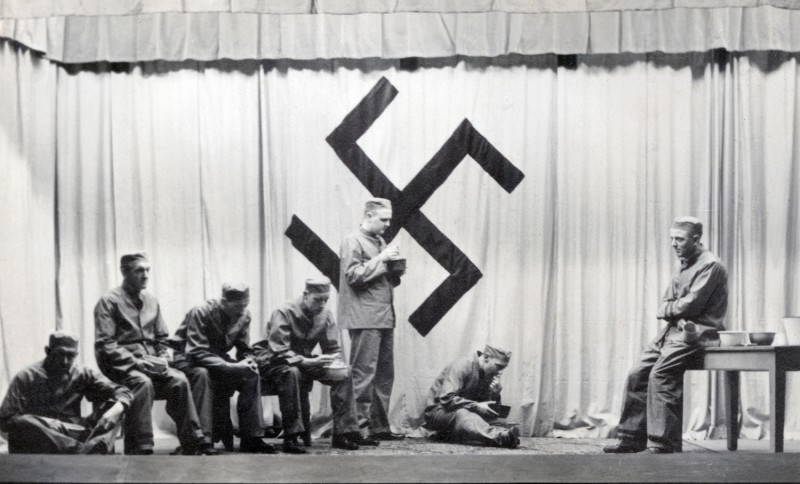
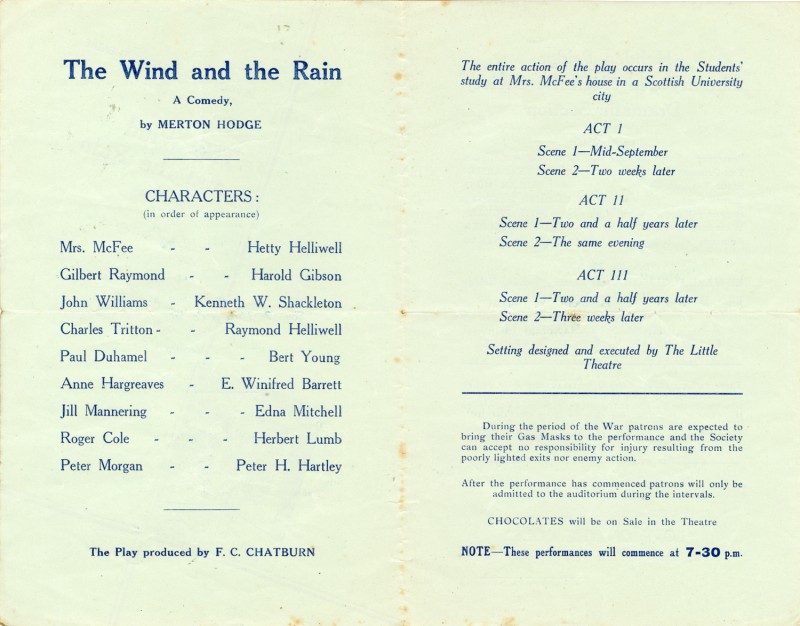
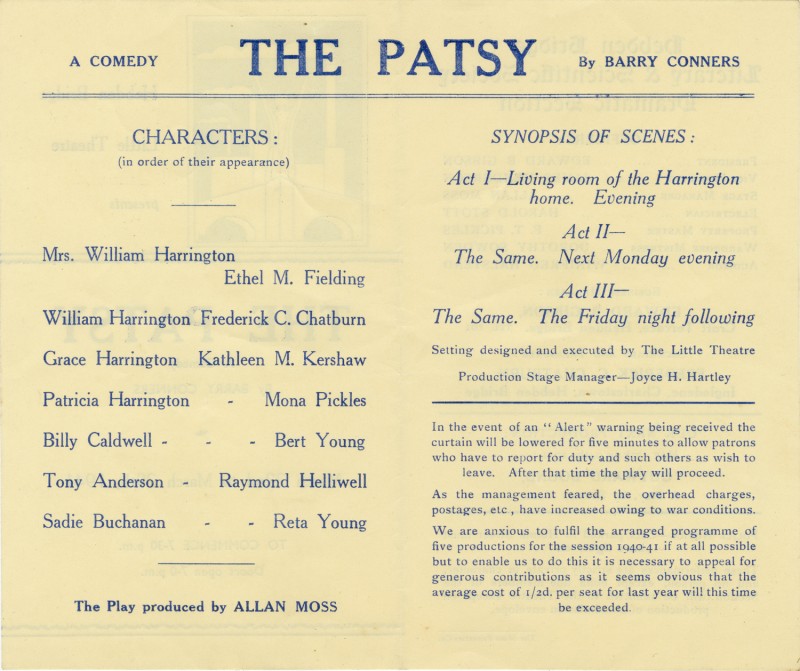
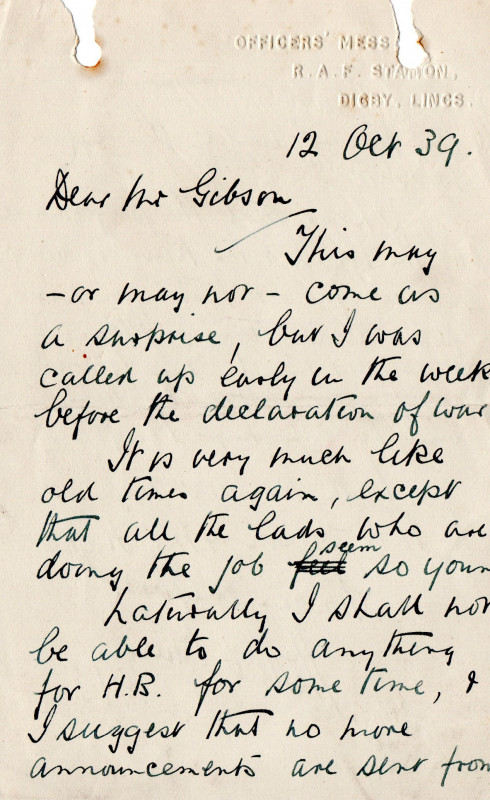

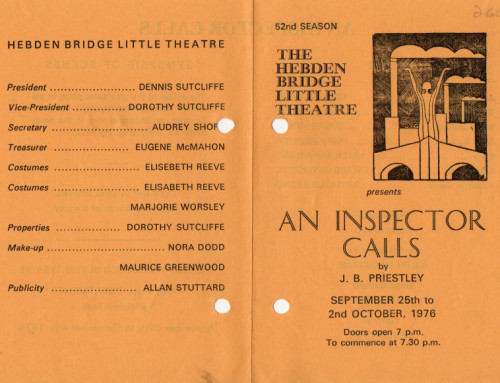
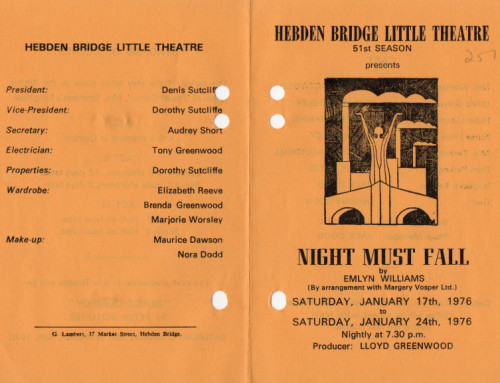
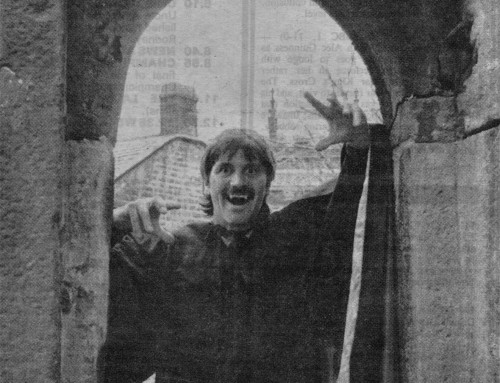
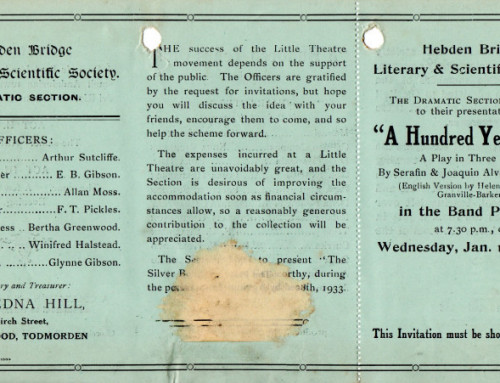
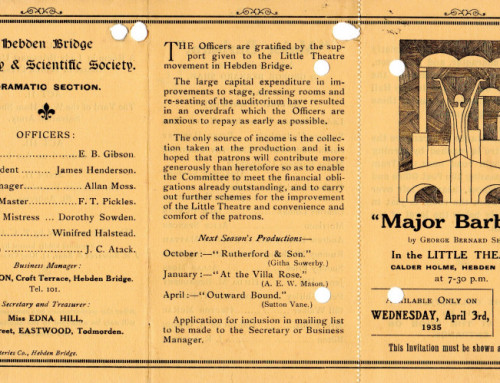
Leave A Comment